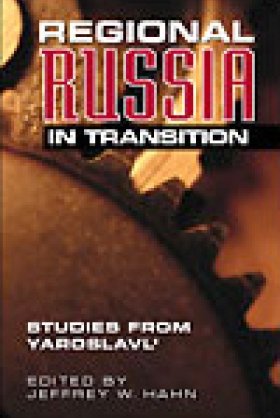Regional Russia in Transition: Studies from Yaroslavl'


While Russsia's central institutions and practice hold the West's attention in assessing the transition to democracy, subnational democratization will largely shape Russians' views of their new government, willingness to participate in it, and trust in its ability to deliver. Regional and local governments not only are nearer to ordinary citizens but have, under Russia's federated constitution, highly important economic and social functions.
Regional Russia in Transition: Studies from Yaroslavl' examines democracy in a central region of Russia, a largely industrialized heartland off the beaten bath from Moscow and Leningrad. Yarslavl' has been the subject of a series of studies since 1990 by a group of senior U.S. Russianists.
Contributors to this book include: Jeffrey W. Hahn, Alexander Khodnev, Boris Sergeyev, Daniel Satinsky, Beth Mithneck, Susan Goodrich Lehmann, Blair A. Ruble.
To purchase this book from The Johns Hopkins University Press click here.
Jeffrey W. Hahn is a Professor of political science at Villanova University.

Kennan Institute
After more than 50 years as a vital part of the Wilson Center legacy, the Kennan Institute has become an independent think tank. You can find the current website for the Kennan Institute at kennaninstitute.org. Please look for future announcements about partnership activities between the Wilson Center and the Kennan Institute at Wilson Center Press Room. The Kennan Institute is the premier US center for advanced research on Eurasia and the oldest and largest regional program at the Woodrow Wilson International Center for Scholars. The Kennan Institute is committed to improving American understanding of Russia, Ukraine, Central Asia, the South Caucasus, and the surrounding region through research and exchange. Read more

Explore More
Browse Insights & Analysis
The OSCE is a Good Value for America

Infographic | Russia's Illegal Annexation of Crimea

Russia’s Indigenous Communities and the War in Ukraine
